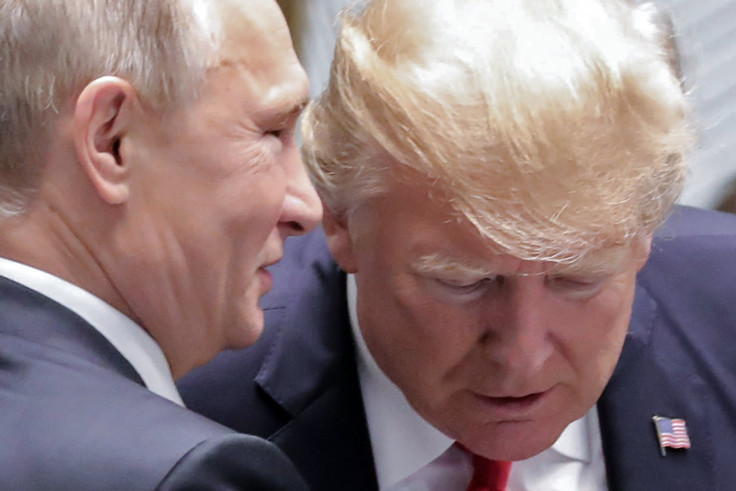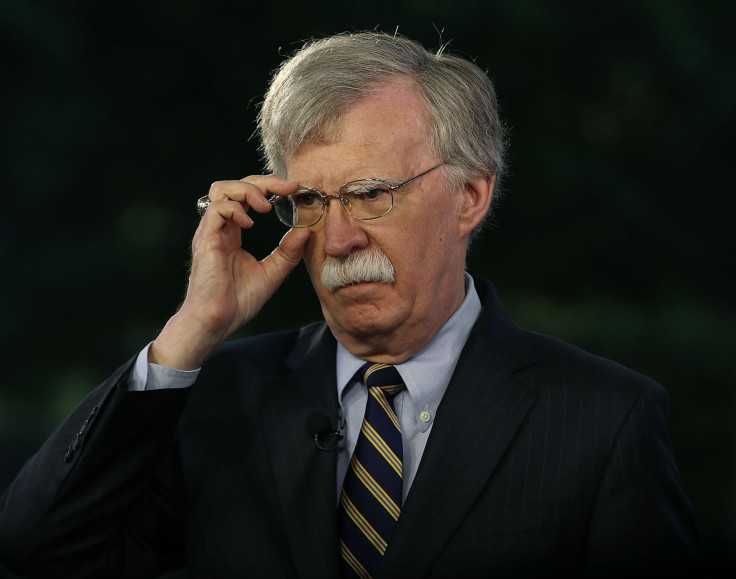Ahead Of Trump-Putin Summit, Anti-Russian NSC Official Leaves Amid Information Leaking Rumors

According to reports, National Security Council (NSC) senior aide Richard Hooker, who was skeptical of the growing friendship between President Donald Trump and Russian President Vladimir Putin, left the department shortly before the two world leaders were scheduled to meet.
Hooker, a retired army colonel who is an advocate of U.S. military presence in Europe and the NATO alliance and viewed Russia as a strategic threat to the country, left his post at the NSC and headed back to the National Defense University (NDU) – which forms the major chunk of Pentagon’s military-education system – the institution from where he had transferred to the NSC on contract.
It is not clear whether Hooker was sacked from his position due to his not-so-favorable views of the Kremlin or whether his employment with the NSC came to a natural end.
The latter seems likely because his opinions line up with that of his new boss – National Security Adviser John Bolton – who has accused Putin of lying to Trump about interfering in the 2016 election.

Hooker was hired by former National Security Adviser H.R. McMaster, who was fired by Trump in March. According to NSC officials who spoke to Daily Beast, Hooker’s employment with the council was always supposed to be temporary. Although he was scheduled to return to the NDU a little while back, he was asked to stay back in order to ease the transition of Bolton.
Since taking office, Bolton has been reconfiguring the council and in the process, a number of officials appointed by his predecessor have either been fired or left on their own.
“When a new NSC adviser was brought on board, [Hooker’s] return to NDU or another assignment was a given,” Joseph Collins, a retired Army colonel who directs the Center on Complex Operations at the National Defense University, said.
Collins also rubbished the statement by two anonymous governmental officials that Hooker reportedly shared classified information related to Russia with foreign officials without proper authorization, which could be reason behind his firing.
“As a consummate professional, Hooker is apolitical and close-mouthed about his duties. He is the last person to tell tales outside of work,” Collins said. “He has a work ethic that would kill a mule. Always first one in and last one out.”
“[Hooker] is committed to a strong U.S. presence in Europe and has the highest respect for allies and the NATO alliance. He was and is concerned about NATO's conventional deterrent in the Baltics and East Europe,” Collins added. “He is a strong supporter of better NATO burden-sharing and improving the economic contribution of our NATO allies.”
Hooker has served as dean of the NATO Defense College in Rome and the senior director for Russia, Europe and NATO for the past 15 months. Prior to that, he was deployed to Somalia, Bosnia, Kosovo, Iraq and Afghanistan.
Although Bolton has adopted a tough rhetoric on Russia at times, he has mostly appointed individuals in the NSC who are known to take a softer approach toward the Kremlin. For example, he hired Fred Fleitz as his deputy chief of staff, who opined sanctioning Moscow for election interference was merely “an attempt to sabotage the Trump administration’s Russia policy.”
© Copyright IBTimes 2024. All rights reserved.












